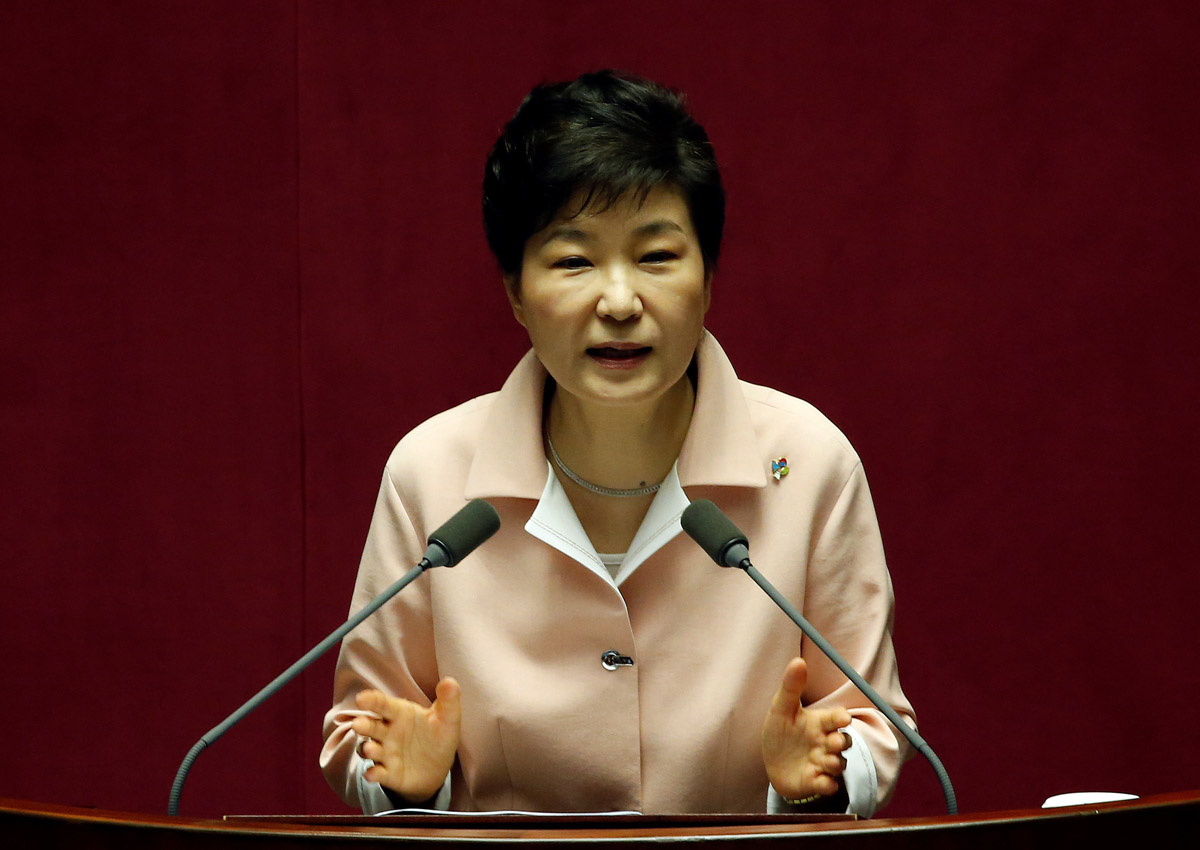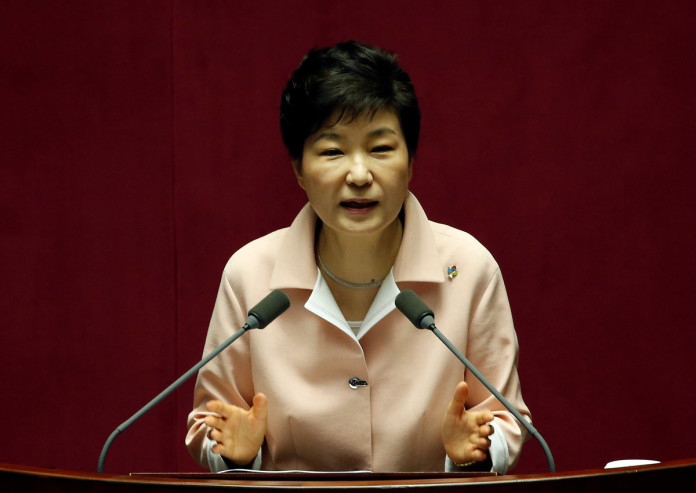SEOUL – Lavish free meals, rounds of golf and expensive gifts of beef and ginseng will soon be off-limits for civil servants, teachers and journalists in South Korea under a law aimed at clamping down on graft that has long been pervasive in professional life.
The anti-corruption law that takes effect next month imposes spending limits on entertainment and gifts, curbing a tradition of hospitality that many restaurants, retailers and farmers worry will deal a blow to business.
“It’s making it illegal for those who have the money and are willing to pay more. This is nonsense,” Yoo Byoung-hee, 45, a cattle breeder in Jecheon, south of Seoul, told Reuters by telephone.
Yoo was among farmers who protested against the law last month in front of parliament.
Boxed sets of beef, especially the prized domestic hanwoo variety, can cost hundreds of dollars and are a staple of gift-giving during the Chuseok holiday next month, as well as during Lunar New Year.
Less-expensive gift sets feature items ranging from apples and Spam to shampoo.
The anti-corruption law had been debated since 2011 and has been welcomed as a tool to clean up professional life in a country that ranks 37th out of 168 on Transparency International’s corruption perceptions index.
But many worry about its impact on a sputtering economy.
The law could wipe out 11.6 trillion won (S$10.43 billion) in revenue for sectors including food, golf, consumer and retail goods, the Korea Economic Research Institute said in June.
Some groups, including the agricultural ministry, have called for an easing of the rules, which limit the value of gifts to people in the targeted categories to 50,000 won and meals to 30,000 won.
Gifts, meals and entertainment that are paid for in a personal capacity are not covered by the law.
It does not apply to members of parliament or much of the private sector.
SCANDALS
President Park Geun-hye said on Tuesday it was important to mitigate the negative impact of the law while maintaining its core purpose.
“Once the law is implemented and transparency and fairness in our society are improved, the effectiveness of our economy will increase and South Korea’s potential growth may be improved,” she told a cabinet meeting.
According to a survey by the Anti-Corruption and Civil Rights Commission last year, 59.2 per cent of South Koreans believed the country was corrupt.
Graft scandals are common.
Last year, former Prime Minister Lee Wan-koo was convicted after receiving 30 million won in a shopping bag during a parliamentary election in 2013, according to prosecutors. He is appealing.
Since the Constitutional Court ruled in favour of the law last month, many restaurants and retailers have been scrambling to adjust, tweaking meal offerings and downsizing gift sets.
Dave Yoon, head of Haewoori, the country’s biggest seafood restaurant chain, said it would introduce a 30,000 won multi-course meal once the law takes effect. “Revenue is probably going to go down but we made this decision because we feel like we have no other choice,” he said.
“We’ve had so many customers come to us worrying about the law because many of our clients come to Haewoori for business. You have to do what you can to keep customers coming.”






